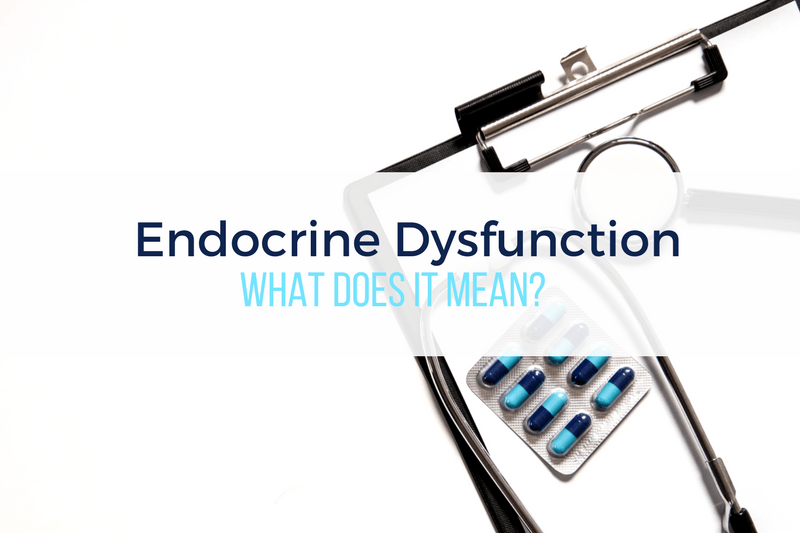
Endocrine Dysfunction
For most patients and families – the thought of HH surgery brings up lots of questions and concerns. Sometimes we aren’t sure what to ask our surgeon regarding all possible complications. With so much focus on seizure control, the discussion of possible effects on endocrine function may be limited, but should definitely be included in the conversation as well.
For HH patients both pre and post surgery – a significant concern can be a disruption to the very delicate balance within the endocrine system. By definition, “the endocrine system is the collection of glands that produce hormones that regulate metabolism, growth and development, tissue function, sexual function, reproduction, sleep, and mood, among other things.” The endocrine system affects almost every organ and cell in the body.
The endocrine system helps control the following processes and systems:
- Growth and development
- Homeostasis (the internal balance of body systems)
- Metabolism (body energy levels)
- Reproduction
- Response to stimuli (stress and/or injury)
The major glands that make up the human endocrine system include the:
- hypothalamus
- pituitary gland
- thyroid
- parathyroids
- adrenal glands
- pineal body
- reproductive glands (which include the ovaries and testes)
- pancreas
As you can see, the hypothalamus is the first major gland listed. Any disruption to that major gland can have a cascading effect on the other glands in the system. This might occur as a result of a lesion such as an HH, or an insult to the hypothalamus through a surgical procedure.
A significant number of HH patients and families have reported some degree of disruption to the individual’s endocrine system either before or after surgery and in some cases both. Some reports have included minor weight gain, fatigue, moodiness, foggy thinking and headaches. Others have reported significant symptoms such as extreme fatigue, significant weight gain, erratic and frequent mood swings, slowed or accelerated growth, low testosterone, and delayed or early puberty. Some of these symptoms and their associated conditions are explained below:
Hypothyroidism, occurs when the thyroid gland does not produce enough thyroid hormone to meet the body’s needs. Insufficient thyroid hormone can cause many of the body’s functions to slow or shut down completely.
Growth Hormone Deficiency is another condition that has been reported. For most HH patients it is considered “acquired” because it was not present at birth. Growth hormone deficiency is characterized by a number of variable symptoms including reduced energy levels, altered body composition, osteoporosis (reduced bone mineral density), reduced muscle strength, lipid abnormalities such as increased LDL cholesterol, insulin resistance, and impaired cardiac function.
Precocious puberty refers to the appearance of physical and hormonal signs of pubertal development at an earlier age than is considered normal. Puberty is considered precocious in girls younger than 8 years. For boys, onset of puberty before age 9 years is considered precocious.
While some of these conditions are indeed out of the norm for HH – it is important to understand the delicate balance of the endocrine system and recognize the symptoms of endocrine dysfunction. Be sure to consult an experienced endocrinologist if you have any concerns. Finding an endocrinologist with HH experience is ideal but really not necessary when it comes to treating general endocrine issues. For some families, it has been a challenge to get referrals to the specialist as symptoms can be very subtle initially.
While the initial focus may be on the surgery itself and seizure control, it is important for patients and families to remain vigilant when it comes to long term endocrine function. Some issues can take time to show up in initial bloodwork and providers can sometimes be hesitant to run expensive labwork or scans without obvious symptoms.
Have you dealt with some of the conditions mentioned in this article? How did you get the proper diagnosis and can you recommend a good endocrinologist in your area?
Additional resources:
Medline Plus – https://medlineplus.gov/endocrinediseases.html
EndocrineWeb – https://www.endocrineweb.com/endocrinology/about-endocrine-system
Hormone Health Network – https://www.hormone.org/hormones-and-health/the-endocrine-system
Medscape – (Precocious Puberty) https://emedicine.medscape.com/article/924002-overview
Healthline.com – (Growth Hormone Deficiency) https://www.healthline.com/health/growth-hormone-deficiency





